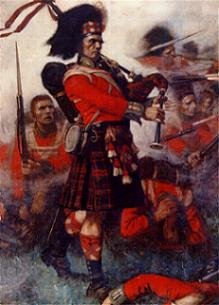Robert Kett
Robert Kett was born in Wymondham Manor in Norfolk, in 1492,
the son of a landowner and butcher. In
1514 he married Alice Appleyard, linking him to Peter Appleyard and his
ancestors.
Alice Appleyard was the daughter of Sir Nicholas Appleyard
and Agnes Rockwood of Stanfield Hall in Bracken Ash. Nicholas had been Knighted at the Battle of
Flodden in 1513 where he had been killed fighting the Scots and with Stanfield
Hall being passed down to his nephew Thomas, Agnes’ marriage the following year
may have been more for necessity than love.
By 1549, Robert and Alice were living a comfortable life
with their sons. Robert was a
tanner with property and landholdings at Wymondham providing an annual income.
Landowners, including Robert had begun to build enclosures
on their land as farmers changed from growing crops to raising sheep. For the tenants of the land, this impacted on
their own ability to access what was considered common land, land that they had
been using for hundreds of years.
In July 1949, tenants began rebelling against landowners,
tearing down many of the fences enclosing the land. This included the enclosed land of Robert and
Alice. After listening to the concerns
of his tenants, Robert agreed with their views, admitting that he had been wrong
in enclosing common land. As an educated
man, the tenants looked up to Robert and he agreed to lead them in persuading other landowners to not enclose common land.
Numbers in the group grew to around 16,000 and Robert
compiled a list of demands to present to the Government on behalf of the tenants, forming a council
of such, made up of representatives from each village who had formed part of
the revolt. Although a rebellion, the
group were expected to adhere to local laws with disorderly followers and
unpopular landowners held to account with justice delivered under a tree which,
according to local folk law became known as ‘the oak of reformation’.
It was during this time that the rebels took control
of Alice’s family home, Stanfield Hall, taking prisoner John and Phillip
Appleyard who were also Alice’s nephews. They don’t appear to have been held
for long with the brothers later defending Norwich against the rebels.
While the Government initially met with the group,
their offer to pardon those who went back to their homes was rejected and the
group, under Kett’s leadership ended up storming the city walls of Norwich,
armed with spears, swords and pitchforks gaining control of what was then the
second largest city in England.
After a group of 1,400 men sent by the Government to
regain control of the city were defeated, the Earl of Warwick with an army of
12,000 English troops and 1,200 German mercenaries were sent to Norwich to end
the rebellion.
Surrounding the city, Kett was ordered to
surrender. An order he rejected. After several days of fighting, Warwick
gained control of Norwich and circled Kett’s camp, attacking the group and
slaughtering an estimated 3,000 men.
Sending the rebels who surrendered home, Kett was held, tried and
convicted of treason.
Robert would be hanged at Norwich Castle on December
7, 1549 and Alice would die the following year, aged 56 at Wymondham Manor, her
home with Robert.
In 1949 a plaque was placed at the
scene of the execution of Kett and other leaders of the rebellion in Norwich: "In reparation and honour to a notable and
courageous leader in the long struggle of the common people of England to
escape from a servile life into the freedom of just conditions."
In 1999 a memorial was established
in Wymondham that recognised Kett's attempt to create a "fairer
society".
Robert Kett
Born: 1492 Wymondham Abbey Manor, Norwich, Norfolk,
England
Died: 07 Dec, 1549 Norwich, Norfolk England
Relationship to Peter Appleyard: 1st cousin, 10 x removed

.jpg)


Comments
Post a Comment